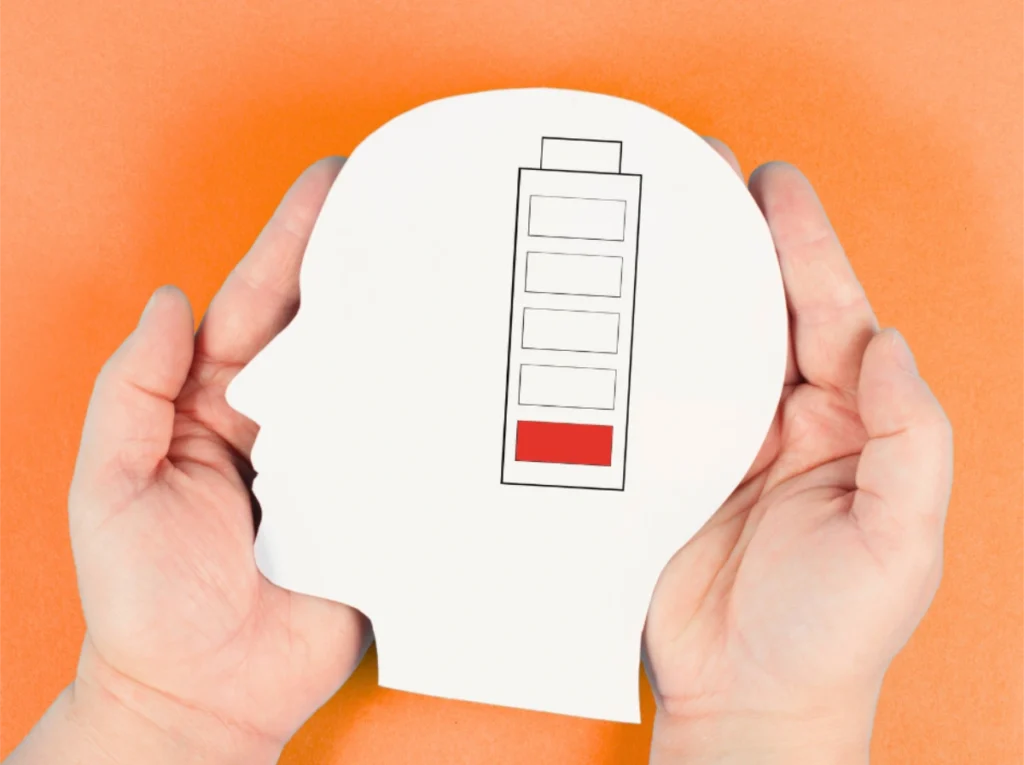The Effects of Auditory Fatigue on Hearing and Listening

Have you ever felt utterly drained after a conversation in a noisy café or struggled to follow dialogue during a family dinner? For many people with hearing loss, this kind of exhaustion isn’t just social burnout—it’s auditory fatigue.
At Knox Audiology, we hear this from our clients all the time. You may be hearing the words, but keeping up with what’s being said takes so much effort that you end up mentally and physically exhausted. This blog explores what auditory fatigue means, why it hits harder for people with hearing loss, and how you can reduce its impact on your daily life.
What Is Auditory Fatigue?
Auditory fatigue is the mental and physical tiredness that results from increased listening effort, especially in challenging sound environments. It’s not just about loudness; it’s about the strain of trying to process speech when the brain works overtime to fill in the gaps.
The brain can usually decode speech even when there is significant background noise in people with normal hearing. But for those with hearing loss, every conversation becomes a puzzle. You rely more on context, lip-reading, and guesswork. Over time, this extra cognitive load can cause real fatigue, similar to how your eyes might get tired after reading fine print in low light.
Why People with Hearing Loss Feel It More
For people with hearing loss, the ears aren’t delivering a full and accurate signal to the brain. As a result, the brain must work much harder to interpret what’s being said, especially in noisy or unpredictable environments. Over time, this constant strain can lead to more than just tiredness. Research suggests that listening-related fatigue may affect overall well-being by causing people to withdraw from activities they once enjoyed. That might mean turning down social invitations, avoiding physical exercise, or scaling back work responsibilities — not because of the hearing loss itself, but because the mental effort required to engage becomes overwhelming1.
The signs of auditory fatigue
Common signs of auditory fatigue include:
- Needing to withdraw from conversations earlier than others
- Feeling exhausted after social events, even when the event required little physical activity
- Increased difficulty focusing or remembering what was said
- Headaches or stress associated with listening effort
This fatigue can affect your mood, your relationships, and even your willingness to participate in activities you enjoy.
How Hearing Aids Can Help (and Why They’re Not Always Enough)
Modern hearing aids can do a lot to improve sound quality and reduce background noise. At Knox Audiology, we fit hearing aids tailored to your individual hearing profile—and we make sure they’re adjusted based on real-world goals, not just in-clinic tests.
However, hearing aids alone may not eliminate auditory fatigue, especially if:
- Your aids are not optimally fitted
- You’re in constantly noisy environments
- You have long-standing, untreated hearing loss
That’s why hearing aid fitting is just one part of the solution. The other part is developing strategies to manage your listening environments and conserve your energy.
Practical Tips to Reduce Auditory Fatigue
If you often feel drained from listening, try these tips:
1. Take regular breaks. Just like your body needs rest after a workout, your ears and brain need downtime after extended listening. Step outside for some quiet or take a short walk without your hearing aids to give your brain a break.
2. Control your environment. Whenever possible, choose quieter venues with good acoustics. Choose a seat that provides you with the best listening comfort. This may be with your back against a wall, or if you have hearing aids, choose a seat that places most of the noise behind you. Reduce background music, and ask your companions to speak clearly. Good lighting also helps with lip-reading.
3. Use hearing technology wisely. Many modern hearing aids can connect to remote microphones, TVs, and smartphones. These features can make listening easier and reduce the load on your brain.
4. Prioritise important conversations. Schedule important calls or appointments when you’re well-rested. It’s okay to conserve your energy for the conversations that matter most.
5. Let others know. You might not want to share that you’re having trouble, but in most cases, your friends and family probably already realise! So, take the lead and tell them, “I can hear you, but it takes a lot of effort in noisy places.” This can help set expectations and reduce frustration for everyone. It may also help them be more considerate of your needs when choosing the next venue.
How an Audiologist Can Help
Auditory fatigue is often under-recognised, but it’s a very real part of hearing loss. If you find that listening wears you out, book a hearing consultation with Knox Audiology. We’ll check your hearing levels and how well your brain is coping with sound.
We can adjust your current hearing aids, suggest assistive listening devices, or guide you with strategies to reduce strain. Even small improvements can make a big difference to your quality of life.
Hearing isn’t just about the ears—it’s also about the brain. And when the brain has to work harder to fill in the blanks, it’s no wonder you feel tired.
Next Steps
If you’re experiencing signs of auditory fatigue, you’re not alone—and our university-trained audiologists at Knox Audiology are here to help you hear more clearly and with less effort.
Ready to reduce your listening effort? Contact us today. Call 03 9800 5697 to book a comprehensive hearing check and take the first step toward easier, more enjoyable communication.
